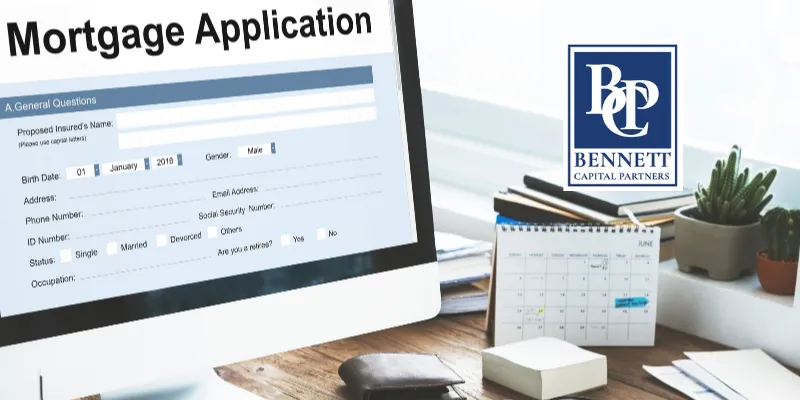Top 12 First Time Home Buyer Programs In Florida
Updated: Feb 1

Buying a home for the first time can be both exciting and challenging, especially when navigating the numerous mortgage options available in Florida. Fortunately, there are numerous first-time homebuyer programs designed to make this process easier and more affordable.
In this blog post, we will explore 12 of the top programs specifically tailored for first-time home buyers, offering everything from down payment assistance programs to low-interest mortgage rates and reduced closing costs.
Quick Navigation - Click the link below to jump to that section..
Top 12 First Time Home Buyer Programs In Florida

Discover the top 12 first-time homebuyer programs in Florida, offering a range of options to help make your dream of homeownership a reality. From conventional loans with low down payments to specialized programs tailored for veterans and rural homebuyers, there's a financing solution for every unique situation. These programs include Conventional 97%, Freddie Mac HomePossible, HomeOne, Fannie Mae HomeStyle and HomeReady Mortgages, FHA loans and down payment assistance, VA loans, USDA loans, jumbo loans, Non-QM loans, and private lending options. Explore these programs and find the perfect fit to help you take your first steps toward homeownership in the Sunshine State.
1.) Conventional 97%
Conventional loans are an excellent option for first-time homebuyers in Florida seeking flexible and competitive first mortgage payment terms. As a leading licensed residential and commercial mortgage brokerage company, Bennett Capital Partners offers innovative financing solutions tailored to fit the needs of first-time home buyers taking advantage of such loans.
Conventional mortgages, backed by Fannie Mae or Freddie Mac, often come with lower interest rates and require as little as 3% down payment. With options like the Freddie Mac HomePossible program or the Fannie Mae HomeReady Mortgage, borrowers can access affordable home financing tailored specifically for those with moderate incomes or limited down payment resources.
Get a quote here
Get a pre-approval letter here
Fannie Mae Website - 97% Loan to Value Options
Freddie Mac's Home Possible® mortgage is an excellent option for first-time homebuyers who want to achieve homeownership with a low down payment. This program offers more options and credit flexibilities than ever before to help very low- to low-income borrowers attain their dream of owning a home. Home Possible® is intended for very low- to low-income borrowers.
The Home Possible mortgage allows for a low down payment as low as 3%, which can be funded by savings, gifts, grants, or community assistance programs. With the Home Possible program, borrowers may also qualify based on income from non-borrower household members and co-habitants; this flexibility helps many people who might not otherwise have been able to purchase homes.
Here are five important things you should know about the Freddie Mac Home Possible Mortgage:
Home Possible® is a financing option for very low- to low-income borrowers, offering a responsible 3% down payment option.
Borrowers with additional financed properties may still be eligible for Home Possible®.
Non-occupant co-borrowers can assist borrowers in qualifying for a 1-unit property.
Various types of down payment sources are acceptable with Home Possible®, including employer-assistance programs, family, sweat equity, and secondary financing.
Borrowers can potentially save money over the life of the loan by cancelling mortgage insurance at 20 percent equity, which can help reduce monthly mortgage payments.
Examples:
A newlywed couple is short on savings but received enough wedding-gift funds to complete their mortgage down payment. Home Possible has them covered by allowing down payment and closing cost funds to come from gifts and a variety of other sources.
A young family is moving to a larger primary home but won’t sell their current house until after closing on the new one. Ownership of another property is permitted with Home Possible, so they can breathe easy at the closing table.
A freelance web designer is ready to buy a home of his own but still needs his parents as co-borrowers. Lucky for him, Home Possible allows non-occupying borrowers on one-unit properties. Loan Product Advisor® asset and income modeler (AIM) for self-employed will make his self-employed income verification a breeze.
A renter with two long-term roommates wants to make the jump to homeownership and will bring her boarders with her. With Home Possible, she can use rental proceeds as qualifying income for her mortgage
Get a quote here
Get a pre-approval letter here
Freddie Mac Website - Home Possible
Calculate Your Payments - Mortgage Calculator
Check Current Interest Rates - Market Rates
3.) Freddie Mac HomeOne
Freddie Mac HomeOne is a great option for first-time homebuyers in Florida. The program allows for a down payment as low as 3 percent and comes with private mortgage insurance, making it easier to qualify for a mortgage.
Unlike other conventional loans, the HomeOne Mortgage Loan Program is exclusively offered to first-time homebuyers by Freddie Mac Single-Family. This means that if you’ve owned a home before, you may not be eligible for this specific loan program.
With only 3% down required on this loan program, along with some of the lowest rates available today, many buyers find Freddie Mac's HomeOne an excellent choice when considering their financing options.
Here are 5 facts about HomeOne®:
HomeOne® is a low down payment solution for first-time homebuyers, offering a 3% down payment option.
The mortgage is available to qualified first-time homebuyers, as well as no cash-out refinance borrowers, with no borrower geographic or income limits.
HomeOne® reflects Freddie Mac's commitment to responsible lending, sustainable homeownership, and improving access to credit.
The mortgage allows for affordable seconds® and another secondary financing, and accommodates various property types.
Homebuyer education is required for purchase transactions when all borrowers are first-time homebuyers.
Get a quote here
Get a pre-approval letter here
Freddie Mac Website - Homeone
Calculate Your Payments - Mortgage Calculator
Check Current Interest Rates - Market Rates
4.) Fannie Mae HomeReady Mortgage
The HomeReady Mortgage from Fannie Mae is a popular first-time homebuyer program in Florida. It aims to make owning a house more affordable for those who are taking their first steps towards homeownership.
With a low down payment requirement of just 3%, this program is perfect for borrowers who have limited cash reserves. Additionally, the HomeReady loan can be used alongside other first-time homebuyer programs offered by Freddie Mac, making it easier for eligible buyers to find and secure financing options that fit their unique situations.
Get a quote here
Get a pre-approval letter here
Freddie Mae Website - Home Ready

5.) Fannie Mae HomeStyle Renovation Mortgage
The Fannie Mae HomeStyle Mortgage is a popular option for first-time homebuyers in Florida who are looking to renovate their new property. Under this program, borrowers can bundle the costs of remodeling and the mortgage into one loan.
This allows home buyers to finance both the purchase and renovation of their new home with just one application and set of closing costs. The program requires a minimum down payment of 3%, making it more accessible for first-time homebuyers with limited funds.
Get a quote here
Get a pre-approval letter here
Freddie Mae Website - HomeStyle Renovation
6.) Federal Housing Administration (FHA)
The Federal Housing Administration (FHA) offers top first-time home buyer programs in Florida, providing qualified borrowers with low down payment options and more lenient credit requirements than traditional mortgages.
FHA loans are backed by the government and usually have lower interest rates, making them an attractive option for those who don't have a lot of cash to put down. Additionally, the program offers up to 100% financing through its Down Payment Assistance Program.
FHA loans aren't just limited to first-time homebuyers either; anyone can apply as long as they meet the eligibility criteria set forth by the administration.
Get a quote here
Get a pre-approval letter here
Federal Housing Administration (FHA) Website - FHA Loans
7.) FHA Down Payment Assistance 100%
One of the top 20 first-time homebuyer programs in Florida is the FHA Down Payment Assistance program, which offers up to 100% financing on the down payment for a mortgage. This means that eligible borrowers can receive assistance with their down payment and closing costs, allowing them to achieve homeownership even if they don't have enough savings for a traditional down payment.
This program is especially beneficial for those who are struggling to save up or are burdened by debt from student loans or other expenses.
Get a quote here
Get a pre-approval letter here
Federal Housing Administration (FHA) Website - FHA Loans
8.) Department Of Veterans Affairs (VA)
The Department of Veterans Affairs (VA) is an important player when it comes to Florida first-time homebuyer programs. If you are a veteran or reserve member, the VA offers eligibility requirements for their home loan programs which can provide competitive interest rates, no down payment options and easier credit approvals.
Additionally, the VA also provides financial counseling and assistance with your mortgage payments if you face difficulty repaying your loan.
Get a quote here
Get a pre-approval letter here
Veterans Affairs (VA) Website - Home Loans
9.) United States Department of Agriculture (USDA)
USDA loans are a type of mortgage loan designed to help low to moderate-income families purchase homes in rural areas. USDA loans offer borrowers the benefit of 100% financing, meaning that no down payment is required. To be eligible, the home must be located in a designated rural area, and the household income must not exceed a certain threshold based on the area's median income. Borrowers must also demonstrate a reliable source of income and steady employment and credit history well.
Overall, USDA loans can be an excellent option for those who want to purchase a home in a rural area but may not have the financial resources to do so through traditional means. If you meet the eligibility requirements, it may be worth exploring this loan program as a viable option for your home purchase.
Get a quote here
Get a pre-approval letter here
USDA Website - Single Family Housing Guaranteed Loan Program
10. Jumbo (Non-Conforming)
Another option available to Florida first-time homebuyers is the jumbo (non-conforming) loan. This type of loan allows borrowers to finance a property above the full conventional loan or conforming loan limit, which varies by county in Florida.
Jumbo loans are typically used for high-value properties, such as luxury homes or vacation homes.
It's important for first-time homebuyers to research their options carefully before selecting a mortgage program that works best for them.
Get a quote here
Get a pre-approval letter here
Bennett Capital Partners Website - Jumbo Home Loans
11.) Non-QM
If you have a lower credit score or inconsistent income, traditional mortgage loans may be difficult for you to qualify for. But fear not - Non-QM (Non-Qualified Mortgage) loans could be the solution for first-time homebuyers with unconventional financial situations.
Essentially, Non-QM loans do not meet standard mortgage requirements and can therefore offer more flexible lending terms such as lower down payment requirements and higher debt-to-income ratios.
However, because they are considered higher risk, interest rates on Non-QM loans tend to be slightly higher than those of traditional mortgages.
Get a quote here
Get a pre-approval letter here
Bennett Capital Partners Website - Non-QM Mortgage Programs
12.) Private Lending
Private lending can be a viable option for first-time homebuyers who may not qualify for traditional mortgage loans. Private lenders are typically individuals or companies that lend money to borrowers and may offer more flexible lending criteria than traditional banks. However, private lending can also come with higher interest rates and fees, making it important for borrowers to thoroughly research and compare their various loan options.
One of the main benefits of private lending is that it can provide financing to borrowers who may have limited credit history or a lower credit score. Private lenders may also offer faster loan processing times than traditional banks, which can be beneficial for homebuyers who need to close on a home quickly. However, private lending may also come with additional risks, such as less oversight and fewer consumer protections than traditional lending options. It's important for borrowers to carefully consider all aspects of private lending before committing to a loan.
Get a quote here
Get a pre-approval letter here
Bennett Capital Partners Website - Private Lending Programs
How To Get Pre-Approved For A Loan

Before diving into the home-buying process, it's crucial for first-time homebuyers to prequalify for a loan. Prequalification helps determine how much money you can borrow and ensures you're searching for homes within your budget. Here's how to prequalify for a loan in Florida:
✔ Review your credit report: Obtain a copy of your credit report from all three major reporting agencies (Equifax, Experian, and TransUnion) to check for any errors or discrepancies that could negatively affect your credit score. You can get a copy of your credit report by contacting Bennett Capital Partners. Start by filling out our quote request form here
✔ Improve your credit score: Aim for a minimum credit score of 580-620 to qualify for most first-time homebuyer programs in Florida. You can enhance your credit score by paying off debts, making timely payments, and reducing your overall debt. Conventional loans typically require a minimum credit score of 620, whereas FHA loans accept scores as low as 500. For USDA loans, a minimum score of 640 is needed, and VA loans range between 580-620.
✔ Calculate your debt-to-income ratio (DTI): Lenders will evaluate this ratio to determine if you can afford the monthly mortgage payments on top of the monthly payments for your current financial commitments. You can calculate your estimated mortgage payment by visiting our mortgage calculators page here
✔ Gather necessary documents: Collect financial documents such as pay stubs, tax returns, W-2 forms, title insurance, and bank statements in preparation for the prequalification process.
✔ Talk to your mortgage broker: Your mortgage broker will shop around and compare the interest rate, fees, and terms offered by different lenders before settling on one that meets your needs. Your mortgage broker will tell you exactly what documents are needed.
✔ Submit a prequalification application: Visit Bennett Capital Partners' online application here to begin the pre-qualification process.
✔ Receive a preapproval: If successful in the pre-approval process, your broker will provide a letter that outlines the maximum loan amount you may be eligible to borrow.
✔ Maintain good financial habits: Continue practicing responsible spending habits throughout the home-buying process to ensure eligibility remains intact during final mortgage approval. Do not make any new credit applications until after your real estate transaction is complete.
By following these steps, first-time homebuyers in Florida can effectively navigate through the prequalification stage and confidently enter the housing market with an accurate understanding of their purchasing power.
Applying For A Mortgage In Florida

When it comes to applying for a mortgage in Florida, there are several important steps you need to take as a first-time homebuyer. Here's what you need to know:
1. Gather Your Financial Information: Before beginning the application process, collect all your financial information, including income statements and bank account details.
2. Determine Your Budget: Calculate how much house you can afford based on your income and expenses. This will help you determine what type of mortgage loan is right for your situation.
3. Discuss your loan options with your broker: Your broker will have conducted due diligence and determined the best possible rates and terms for your mortgage loan.
4. Complete the Application: You'll need to fill out an application with your mortgage broker, providing detailed information about yourself and your financial status. You can start the application process by going here
5. Provide Necessary Documentation: Be ready to submit any additional documents requested by the broker and lender, including tax returns or pay stubs. Your broker will guide you through each step and inform you precisely what is required.
Remember that each type of loan program may have specific requirements when it comes to applying, so make sure you do your research beforehand. Additionally, consider working with a licensed mortgage broker like Bennett Capital Partners, who can help guide you through the application process and find the best loan options for your unique needs.
House Hunting In Florida

House hunting in Florida can be an exciting journey for first-time homebuyers looking to invest in the Sunshine State's dynamic real estate market. With a diverse array of properties available, from waterfront condos in Miami to charming single-family homes tucked away in quiet neighborhoods, there is something for every buyer's taste and budget.
One crucial aspect of finding your dream home is understanding the local housing market trends and how they may impact urban development, the buyers' market, and property values. In Florida, certain areas are known for their booming growth while others offer more stability, making them ideal choices for long-term investments.
Moreover, similarly-priced properties may vary drastically depending on factors such as location, amenities, age of construction or renovation status.
While it might be tempting to immediately start searching through online listings or attending open houses all over town, taking the time to get pre-approved for a mortgage beforehand gives first-time home buyers an edge in this competitive market – not only by showcasing their seriousness but also offering insight into what they truly can afford.
This initial step involves analyzing credit scores alongside other factors (such as income levels) before seeking out suitable loan programs which cater specifically to those looking toward homeownership within the state of Florida itself; some examples include FHA, Fannie Mae, FreddieMac, loans or down payment assistance programs offered by various sources outlined previously above.
Making An Offer On A House In Florida

Making an offer on a house in Florida can be nerve-wracking for first-time homebuyers, but it doesn't have to be. Here are some steps to help guide you through the process:
1. Decide on your offer price: Consider the asking price of the property, how long it's been on the market, the home's purchase price, and any recent sales in the area.
2. Determine your contingencies: Contingencies protect you if something goes wrong during the home-buying process. Common contingencies include financing, a home inspection done, and appraisal.
3. Draft a purchase agreement: Once you've determined your offer price and contingencies, draft up a purchase agreement with your real estate agent or attorney.
4. Submit your offer: Your real estate agent will present your offer to the seller's agent, who will then pass it along to the seller.
5. Negotiate: The seller can either accept, reject or counteroffer on your initial proposal. Be prepared to negotiate until both parties reach an agreement.
6. Get pre-approved for a mortgage: If your offer is accepted, make sure to follow up with getting pre-approved for a mortgage so that you can secure financing for closing day.
To support your blog post on making an offer on a house in Florida, you can reference the following reputable websites:
Zillow: Zillow is a widely recognized real estate platform offering information on buying, selling, and renting properties. Their comprehensive home-buying guide covers various aspects of the process, including making an offer on a house.
Florida Realtors: Florida Realtors is the largest professional trade association for real estate agents and brokers in Florida. Their website provides resources, news, and market data relevant to the Florida housing market.
NerdWallet: NerdWallet is a reputable personal finance website that offers advice and tools for various financial decisions, including home buying. Their guide on making an offer on a house can provide valuable insights for your blog post.
Remember that making an offer on a house is just one step in the home-buying process. Make sure to do thorough research and work with trusted professionals throughout every step of the way!
Closing On A Home In Florida

Closing on a home for first time buyers in Florida can be an exciting and daunting experience, but it's essential to understand what the process entails. Here are some important things first-time homebuyers should keep in mind:
1. Schedule a Closing Date: After you have made an offer and signed the purchase agreement, you and the seller will need to agree on a closing date.
2. Get the Final List of Costs: Your lender is required to give you a Loan Estimate that shows all the fees associated with your mortgage. You should get a final list of costs three days before closing.
3. Conduct A Final Walkthrough: Before closing, make sure you conduct one final walkthrough of your new home to ensure everything is in place as agreed upon.
4. Bring the Required Documents: On closing day, bring all required documents like IDs, proof of insurance and funds for down payment or closing costs if needed.
5. Sign The Papers: During the closing process, you'll sign several documents agreeing to pay off your mortgage over time, including promissory notes and deeds of trust (mortgage).
6. Pay All Closing Costs: Make sure that you pay all necessary fees or expenses during the closing process to complete your home purchase smoothly.
7. Get Your Keys And Move In: Once all documents have been signed and payments made, your real estate agent will hand over keys to your new property, which marks the end of the journey for first-time homebuyers in Florida!
Remember, it's always better to be prepared than surprised when it comes to purchasing a house!
Closing On A Condo In Florida

Closing on a condo in Florida can be a bit different compared to closing on a house.
Here are some important things to consider:
1. Review the Condo Documents: Before closing, it's crucial to review the condo association documents, which include the bylaws, budget, and rules and regulations.
2. Understand Condo Fees: It's essential to understand what your monthly condo fees cover and how much they are before closing.
3. Get Insurance Coverage: You need to get insurance coverage that protects both the interior of your condo (walls in) and any personal property you have inside it.
4. Prepare for Closing Costs: Closing costs and property taxes for a condo in Florida may be different from those for a house. Be prepared to pay closing costs like recording fees, property taxes or transfer taxes.
5. Attend Closing: On closing day, you'll sign all the necessary paperwork and pay any remaining balances due.
6. Receive Keys: After everything is signed and paid, you'll receive the keys to your new condo! Congratulations!
Remember that each condo association has its own unique set of rules and fees, so make sure you understand what you're getting into before making an offer on a condo in Florida.
Conclusion

In conclusion, Florida offers a plethora of options for first-time homebuyers to make their dream of homeownership a reality. From federal programs providing 100% financing and low mortgage rates to state-specific grants offering down payment assistance and reduced closing costs, there is something for everyone.
While each program has its own set of requirements, the benefits they offer are unparalleled. So if you're ready to take the leap into homeownership, explore these top 20 Florida first-time homebuyer programs and find the one that suits your needs best.
FAQs for First-Time Homebuyers in Florida
What is the minimum credit score required for a mortgage in Florida?
Most lenders prefer credit scores of 620 or higher, but there are options available for those with lower scores.
How much down payment is needed for a first-time homebuyer loan in Florida?
The amount of required down payment varies depending on the type of mortgage payments and loan program you choose.
Are there any grants or financial assistance available for first-time homebuyers in Florida?
Yes! Many first-time homebuyer programs in Florida offer grants and other forms of assistance to help cover your upfront costs.
Are there income limits for first-time homebuyer programs in Florida?
Yes, most first-time homebuyer programs have income limits based on household size and location.
How long does the closing process take for first-time homebuyers in Florida?
Typically, closing takes about 30-45 days from the time your offer is accepted

Philip Bennett
Philip is the owner and Licensed Mortgage Broker at Bennett Capital Partners. He earned his degree in Accounting and Finance from Binghamton University and holds a Master's Degree in Finance from NOVA Southeastern University. With more than 20 years of experience, Philip has been a leader in the mortgage industry. He has personally originated over $2 billion in residential and commercial mortgages.
Learn more about Philip Bennett's background and experience on our Founder's page. Whether you're a first-time homebuyer or a seasoned real estate investor, our team is here to help you achieve your real estate goals. Don't wait any longer, contact us today and let us help you find the right mortgage for your needs.
Discover helpful tips and tricks on mortgages by reading our blog posts
Can I Get a Bank Statement Cash Out Refinance Loan? to learn more about how this program can help you purchase your dream home in Miami. Click here to read the full article
Fannie Mae Homepath Program: Everything You Need to Know to learn more about how this program can help you purchase your dream home in Miami. Click here to read the full article
Fannie Mae HomePath Program: Your Key to Finding Your Dream Home to learn more about how this program can help you purchase your dream home in Miami. Click here to read the full article
Home Possible® Mortgage Income Limits & Guidelines to learn more about how this program can help you purchase your dream home. Click here to read the full article
A Deep Dive into Fannie Mae's Condo Project Review Process to learn more about how this program can help you purchase your dream home. Click here to read the full article
Fannie Mae HomePath Program: Your Key to Finding Your Dream Home to learn more about how this program can help you purchase your dream home. Click here to read the full article
How To Get The Best Mortgage Rates In Florida to learn more about how the mortgage rates, this program can help you purchase your dream home. Click here to read the full article
